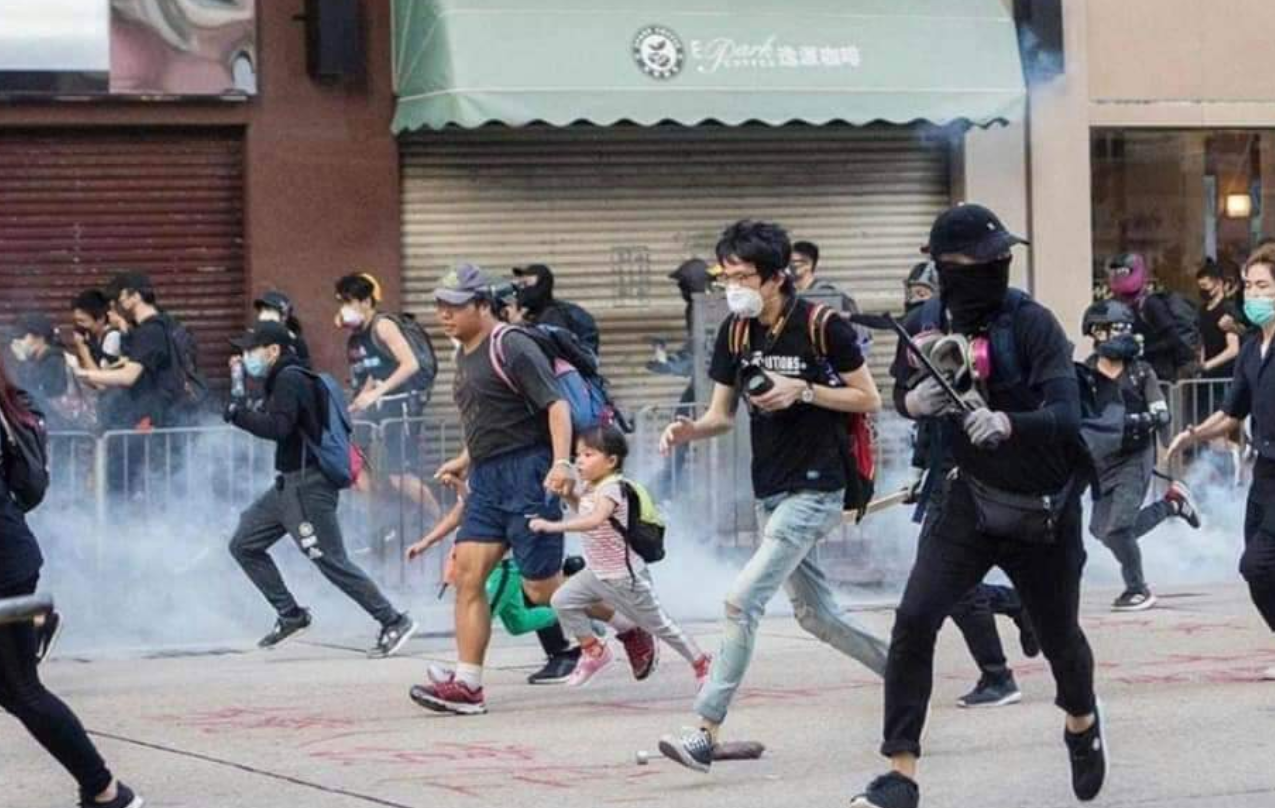Hong Kong police on Wednesday arrested more than 300 people amid renewed street protests ahead of China’s imposition of draconian sedition laws on the city, bypassing its Legislative Council (LegCo).
Protesters built barricades across major streets in Kowloon’s Mong Kok district with roadsigns, planking, and traffic barriers, setting fires and placing other obstacles on the roads to hinder the advance of riot police.
Crowds gathered near government headquarters in Admiralty, in the Central business district, and the Causeway Bay shopping district on Hong Kong Island, chanting slogans that included “Free Hong Kong, Revolution now!”
Some protesters also shouted a relatively new slogan: “Independence for Hong Kong! The only solution!”
Some of the arrestees were found in possession of Molotov cocktails and nails, according to police, but some of those boarding a police bus under apparent arrest were schoolchildren in uniform, still carrying their backpacks, according to photographs posted to social media.
“Police had arrested over 300 people for offenses including possession of offensive weapons [and] … participating in an unlawful assembly,” the police said in a statement.
Meanwhile, the city’s secretary for security John Lee repeated the ruling Chinese Communist Party’s characterization of the protesters as “terrorists.”
“The Hong Kong government will use the strictest law possible to crack down on terrorism,” Lee told journalists.
“In cases where there is sufficient evidence, the police and the justice department will look into bringing charges against suspects under U.N. anti-terrorism measures, as well as freezing the personal assets of suspects,” Lee said.
Plan to move ahead
The ruling Chinese Communist Party on Monday said it will carry through its plan to impose a draconian sedition and subversion law on Hong Kong, claiming it is part of a crackdown on “terrorism” in the city.
China’s National People’s Congress (NPC) — which usually passes any government proposal put before it — will “vote” on the plan on Thursday.
Beijing insists that the minority of protesters who have resisted widespread violence from riot police with barricades, bricks, Molotov cocktails, and other makeshift weapons are “terrorists.”
Beijing revealed plans on May 21 to send its feared state security agents into Hong Kong to pursue people suspected of “sedition” or “subversion,” or of doing the work of ‘foreign forces’ during the city’s months-long protest movement.
In a move that many say signals the end of Hong Kong’s promised autonomy and traditional freedoms of speech and association, state security police from mainland China will be allowed to set up shop in Hong Kong to fulfill their duties under the new law, according to a precis of the decision supplied by state-run Xinhua news agency.
The plan has been widely condemned by foreign governments and rights groups as a breach of China’s obligations under the 1984 Sino-British Joint Declaration, a U.N.-registered treaty governing the handover.
Rights groups said the law will mean Beijing can ensure that only voices and activities that toe the party line will be allowed in Hong Kong, which was promised a continuation of its traditional freedoms of the person, publication, and association under the handover agreement.
U.S. reviews relations
The proposed legal move comes at a time when the U.S. is reviewing, under the Hong Kong Human Rights and Democracy Act, whether to continue to treat Hong Kong as a separate jurisdiction from China, given Beijing’s growing insistence on wielding direct political power in the city.
Beijing has said the 1984 Sino-British Declaration promising the continuation of Hong Kong’s freedoms and a high degree of autonomy is no more than a “historical document,” and has repeatedly warned other countries not to interfere in its internal affairs.
Former British colonial governor Chris Patten this week called on G7 nations to stand up for Hong Kong’s freedoms, warning that President Xi Jinping is launching an all-out attack on liberal values there.

